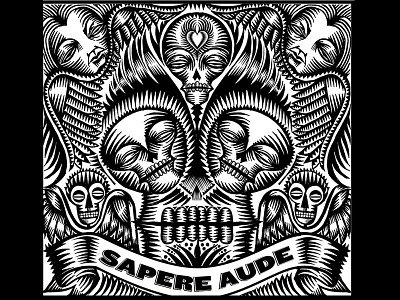Sapere Aude
"Dare to Know"
Wikipedia says: "Sapere aude is a Latin phrase meaning “dare to know”; also loosely translated as “dare to be wise”. Originally used in the First Book of Letters (20 BC), by the Roman poet Horace, the phrase sapere aude became associated with the Age of Enlightenment (17th and 18th centuries), after Immanuel Kant used it in the essay, “Answering the Question: What Is Enlightenment?” (1784). As a philosopher, Kant claimed sapere aude as the motto for the entire period of the Enlightenment, and used it to explore his theories of the application of reason in the public sphere of human affairs.
In the 20th century, in the essay “What is Enlightenment?” (1984) Michel Foucault took up Kant's formulation in an attempt to find a place for the individual man and woman in post-structuralist philosophy, and so come to terms with the problematic legacy of the Enlightenment. In the essay The Baroque Episteme: the Word and the Thing (2013) Jean-Claude Vuillemin proposed that sapere aude be the motto of the Baroque episteme.[1]"









